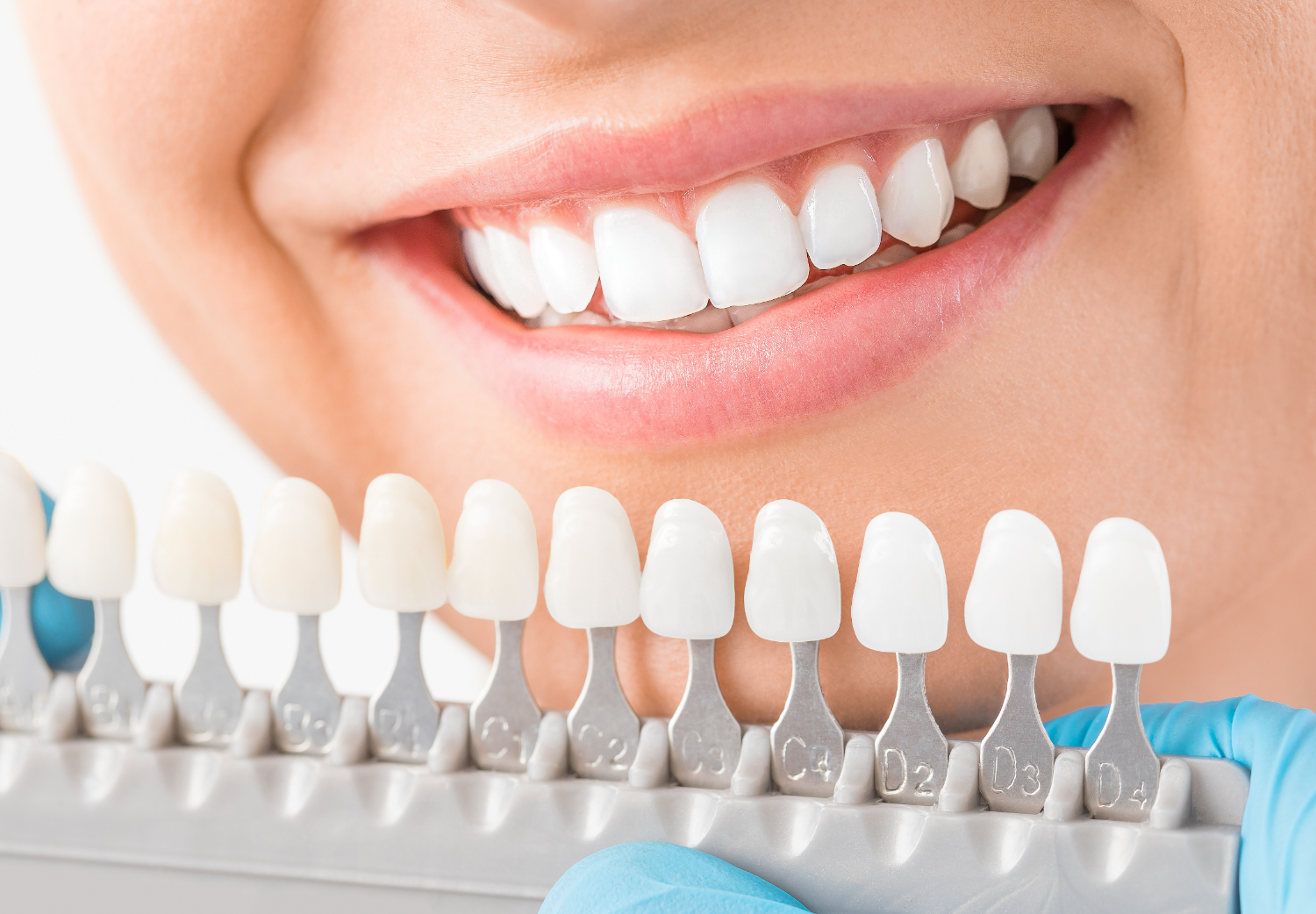Most people equate a bright white smile with good oral health. If you are unhappy with your smile because of staining from years of drinking wine, coffee, and cola you may be considering whitening your teeth. But if you suffer from tooth sensitivity, the idea of using teeth whitening products might make you apprehensive.
The good news is that there are ways you can benefit from teeth whitening products and manage your sensitivity at the same time. If your teeth are very sensitive, it’s a good idea to consult a professional before you try to whiten your teeth at home. Your dentist can go over the best teeth whitening options for you. In the meantime, we have some tips that may set your mind at ease if you decide to go it alone.
Why Do Teeth Whitening Products Cause Sensitivity?
Before we answer that question, it’s good to have a bit of background on how teeth whitening works. The most effective process is to use bleaching products that have hydrogen peroxide or carbamide peroxide as the main ingredient. If you have your tooth whitening done in your dentist’s office, they use a high concentration of peroxide, sometimes as high as 40% or more. It’s usually part of a whitening gel, which you leave on your teeth for 30 minutes or so. Whitening your teeth at a dental office usually yields the best results in a much shorter time frame. Usually, after one or two visits, your smile will be up to eight times whiter than before. Another option is to purchase a whitening kit to use at home with lower concentrations of peroxide, or you can buy over-the-counter whitening strips. These strips have a thin layer of an active bleach-based solution on them which whitens teeth after multiple uses.
Side effects of utilizing bleaching products include tooth sensitivity and possible irritation of teeth and gums. This is because the peroxide penetrates through pores in the tooth to get staining that happens deep inside the tooth. When those pores open up, it can channel hot and cold substances down to the root of your tooth, causing sensitivity. If you already suffer from sensitive teeth, the bleaching process can make your symptoms even worse, turning the pain level up a notch.
Whitening Sensitive Teeth
For most people, tooth sensitivity after whitening is a temporary problem. But if you decide that you’d like to try and whiten in spite of your already sensitive teeth, there are ways to go about it. The first step is to talk to your dentist. A dental professional will have lots of experience whitening sensitive teeth and can go over all your options. Sometimes simply employing a lower concentration of whitening product is enough to do the trick. Your dental office might have a whitening gel that has anti-sensitivity properties to lessen any pain you’ll feel after the treatments.
If all else fails, those with sensitive teeth may want to focus on removing surface stains alone. Using a whitening toothpaste or mouthwash can work wonders if used consistently. Toothpaste with whitening ingredients can help scrub stains that lay on the surface of the tooth. Mouthwashes have a small amount of peroxide in them, which can reduce staining without exasperating sensitive teeth. Your dentist can also use a good polishing product and work on a tooth that has exceptional staining. No matter what option you choose, working closely with your dentist get your smile brighter in no time.
Managing Sensitive Teeth After Whitening
There are steps you can take to reduce the chance of sensitivity after whitening. Opt for a lower concentration of bleaching agents. Multiple treatments are more pleasant than excessive tooth pain. Brush your teeth before your treatment, not after. Use a toothpaste that’s formulated for sensitive teeth twice a day to help plug the microscopic holes that cause a tooth to become sensitive in the first place. Make sure you use a soft brush and be very gentle for a few days after your treatments. Using lukewarm water over cold can also make brushing a bit more comfortable.
Whitening Teeth Is Possible
Keeping up with your oral health goes a long way to keeping your teeth clean and bright. Even if you suffer from sensitive teeth, chances are good that you can still take advantage of teeth whitening procedures. Whether you choose a whitening gel with desensitizing properties, or an over-the-counter product at home, you and your dentist can work together to whiten that smile up in no time.
